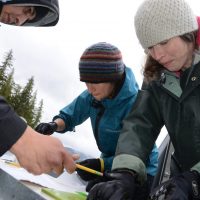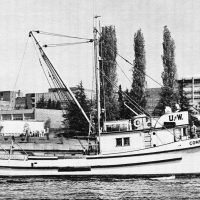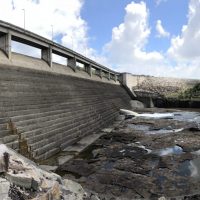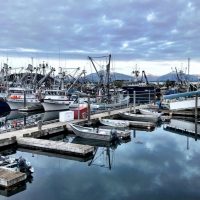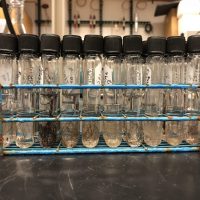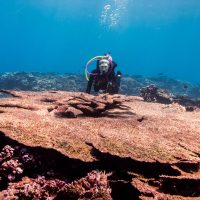Filter Results
Donor Profile: Chuck McCallum, Chignik Regional Aquacultural Association
The Chignik Regional Aquaculture Association (CRAA) has been involved with the Fisheries Research Institute (FRI) for 40+ years. (FRI’s title changed to Alaska Salmon Program (ASP) in the late 1990s, but the old name is still commonly used in Alaska.) The funding CRAA provides helps FRI maintain important fisheries research in Chignik as well as educate future fisheries scientists.
Read moreJulia Indivero awarded ESA 2021 Graduate Student Policy Award
The Ecological Society of America (ESA) is honored to announce the Katherine S. McCarter Graduate Student Policy Award (GSPA) 2021 cohort. This award provides graduate students with the opportunity to receive policy and communication training before they meet lawmakers. ESA selected 23 students to receive the award including Julia L. Indivero from the University of Washington School of Aquatic and Fishery Sciences.
Read moreDNA sequencing reveals genetic basis of herring biodiversity
Herring that spawn at different times of the year are genetically distinct from one another, according to a new paper published Feb 24th in the Proceedings of the Royal Society B. The study, led by Eleni Petrou and Lorenz Hauser from the University of Washington School of Aquatic and Fishery Sciences, shows that populations of Pacific herring along the US west coast are genetically structured based on when they spawn and secondarily, where they spawn.
Read moreLogging change in Puget Sound: Researchers use UW vessel logbooks to reconstruct historical groundfish populations
To understand how Puget Sound has changed, we first must understand how it used to be. But unlike most major estuaries in the U.S., long-term monitoring of Puget Sound fish populations did not exist until 1990. Now researchers have discovered an unconventional method to help fill in gaps in the data: old vessel logbooks.
Read moreUsha Varanasi featured in Food for Thought: Luminaries Collection
Affiliate faculty Usha Varanasi recently published an article as part of the ICES Journal of Marine Science (ICES JMS) Food for Thought: Luminaries Collection, a curated collection of articles written by distinguished luminaries in the field of Marine Science.
Read moreChelsea Wood featured on podcast “Science Rules! with Bill Nye”
When it comes to things that give us the heebie-jeebies, parasites reign supreme. However, they are a necessary part of our ecosystems. SAFS assistant professor Chelsea Wood joins Bill Nye on his “Science Rules!” podcast to explain what makes parasites so creepy, how to prevent them from killing us, and why she keeps digging around in decades-old cans of salmon.
Read moreIn Brazil, many smaller dams disrupt fish more than large hydropower projects
A new University of Washington paper quantifies the tradeoffs between hydroelectric generation capacity and the impacts on river connectivity for thousands of current and projected future dams across Brazil. The findings confirm that small hydropower plants are far more responsible for river fragmentation than their larger counterparts due to their prevalence and distribution.
Read moreMore management measures lead to healthier fish populations
Fish populations tend to do better in places where rigorous fisheries management practices are used, and the more measures employed, the better for fish populations and food production, according to a new paper published Jan. 11 in Nature Sustainability.
Read moreBear hair sheds light on their diverse diets
Researchers from the University of Washington recently assessed the contribution of salmon to the diet of brown bears in Southwest Alaska. Their findings confirmed that while the bears are reliant on large seasonal salmon runs, they also eat a variety of other foods, including both vegetation and fauna. The research results were published November 5 in the online issue of the Journal of Fish and Wildlife Management.
Read moreCoral recovery during a prolonged heatwave offers new hope
The pressing concerns of climate change have placed the long-term health of the world’s coral reefs in jeopardy. However, new research inspires hope as some corals managed to survive a recent and globally unprecedented heatwave.
Read more

